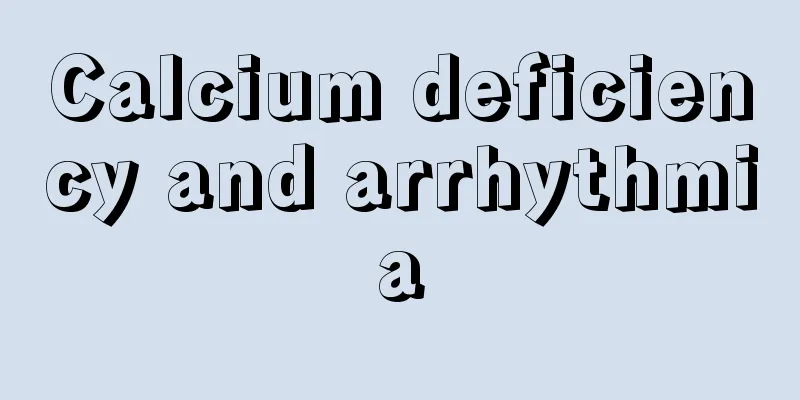Calcium deficiency and arrhythmia

|
Many people know that they should pay attention to calcium supplementation. Babies start eating milk calcium after birth, and start taking calcium supplements to grow taller when they grow up. The elderly take calcium tablets to prevent osteoporosis. Calcium supplements can be found everywhere. The impact of calcium deficiency is also great, and in severe cases it may affect arrhythmia. This article introduces in detail some signs of calcium deficiency in athletes. If encountering this situation, you must supplement calcium in time to prevent the condition from worsening. Let’s take a look. Many runners know the importance of calcium for healthy bones and teeth, but it's also essential for proper heart and muscle function. However, calcium deficiency is very common, and runners need to pay attention to some signs of calcium deficiency and supplement calcium in time. Numbness and tingling In the early stages of calcium deficiency, numbness or tingling may occur in the face, hands, feet and other parts. This is because calcium deficiency can cause muscles and nerves to become abnormally excited, leading to numbness or tingling. At this time, timely diagnosis and treatment are needed. Muscle cramps Calcium deficiency can make muscles more sensitive. If the deficiency is severe, it can cause muscle cramps, twitches and even pain. Whether walking or running, people may feel pain in the buttocks and arm muscles, especially in the armpits. In addition, calcium deficiency can also lead to low blood pressure. Brittle nails When calcium deficiency develops to a certain stage, it will affect other parts of the body. For example, nails will become dry and brittle, and will break if you are not careful. In addition, hair growth will slow down and even hair loss may occur. Bones are easily broken Most of the calcium in the human body is found in the bones, so when calcium is deficient, the bones are the first to be affected, becoming brittle and prone to stress fractures. Oral health problems Since teeth also need calcium, a calcium deficiency can lead to many oral health problems, including tooth decay, loose teeth, sensitive gums, etc. When the bones are deficient in calcium, the body draws calcium from the teeth, resulting in insufficient calcium in the teeth. Chronic fatigue Studies have found that when there is insufficient calcium in the body, it will cause frequent fatigue and drowsiness, and also lead to sleep problems such as insomnia, which in turn cause symptoms such as headaches, dizziness, inattention, and irritability. Arrhythmias Calcium has a huge impact on the heart. If calcium deficiency is severe, it will cause irregular heartbeat, affect the normal functioning of the myocardium, and cause abnormal blood transfusion function. In severe cases, this condition can lead to fainting. Heart failure Even more serious than arrhythmia is heart failure, which is caused by a lack of calcium that affects the heart muscle's contraction and pumping function. Symptoms of heart failure include shortness of breath, low blood pressure, and swelling in the legs. |
<<: What's going on with a slow heart rate and high blood pressure
>>: Normal young people's maximum heart rate
Recommend
What is thyroid cancer?
What is thyroid cancer? The thyroid gland is a pa...
How to take care of keratinized skin?
Skin keratinization refers to the condition where...
Vaseline lubricant
Vaseline lubricant has multiple functions, especi...
Why does sperm smell?
If you know something about men's sperm, you ...
What should I do if half of my tooth has fallen out?
If half of a decayed tooth has fallen out, a dent...
Specific symptoms and manifestations of lung cancer
Do you know anything about lung cancer? Do you kn...
How to treat lymphoma on the lungs
In the early stage of lung lymphoma, surgery and ...
8 major effects of fruit peels, the miraculous effects of fruit peels that you know
1. Pear peel Pear peel is a traditional Chinese m...
What causes blisters on the scalp
Some people often feel pain when the comb touches...
What are the methods of anal dilation
Anal dilation is actually an anal expansion surge...
Will excessive masturbation cause chest tightness and rapid heartbeat?
Men should be familiar with the word masturbation...
What are some anti-aging diets?
Every woman wants to retain her youth, delay agin...
What are the advantages and disadvantages of washing your face with beer?
Many people in life have the habit of drinking be...
Stir-fried peanuts in a pressure cooker
I believe everyone has eaten fried peanuts, and e...
Can drinking red wine regularly prevent prostate cancer?
As men are under more and more pressure, many men...









